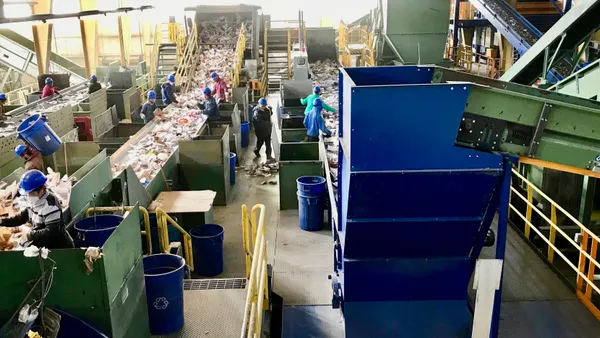Dive Brief:
- SPI: The Plastics Industry Trade Association's SPI Bioplastics Division has released a report on bioplastics that defines them as "partially or fully biobased and/or biodegradable," and also explains their benefits—including reduced dependence on fossil fuel, potential reduction of carbon footprint, and reduction of global warming potential.
- Consumers can tap into the report to learn about Federal Trade Commission (FTC) expectations tied to manufacturers' and distributors' claims. The FTC requires they provide science-based evidence for their origin and their percentage of biobased or biodegradable content.
- Among the report's key points:
- A common misconception of bioplastics is that they are both biobased and biodegradable. Recyclable polymers such as PET and PE can be biobased, but are treated the same as any other PET and PE.
- Products that are biodegradable, such as industrially compostable plastics, should be labeled accurately and tested to show they behave as claimed.
- Plastics with degradable or oxo-degradable additives are not considered biodegradable, per FTC rulings, and should not be labeled as such.
Dive Insight:
SPI and its members push for biobased and biodegradable plastics to foster an industry commitment to creating more sustainable materials, and the educational report is an extension of that goal.
So far several companies sell a 30% biobased plastic, while Coca-Cola has developed (but not yet commercially produced) a 100% biobased plastic. A 100% plant-based bottle is the ultimate industry goal in order to drastically cut carbon emissions.
"We wanted to simply explain bioplastics and showcase how bioplastics support the plastic industry’s focus and commitment to reduce waste and create products that are sustainable," said Patrick Krieger, assistant director of Regulatory & Technical affairs at SPI, in a statement. "With our members and consumers in mind, we wanted to clarify how these innovative materials are composed, and highlight their benefits to the environment."









